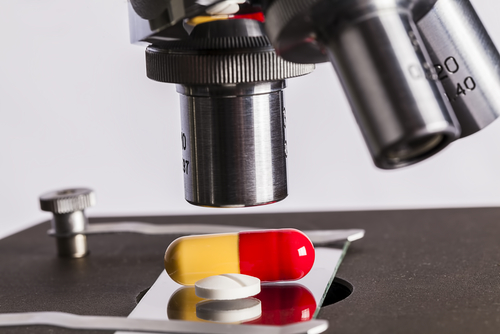 Researchers at the Salk Institute for Biological Studies, an independent, non-profit, scientific research facility in La Jolla, California, have developed a groundbreaking way of tricking the body to think it is consuming calories. They developed a pill that causes fat burn and halts weight gain, lowers cholesterol, controls blood sugar, and minimizes inflammation in mice. Its pre-clinical performance make it an excellent candidate for rapid transition from mice experiments into human clinical trials.
Researchers at the Salk Institute for Biological Studies, an independent, non-profit, scientific research facility in La Jolla, California, have developed a groundbreaking way of tricking the body to think it is consuming calories. They developed a pill that causes fat burn and halts weight gain, lowers cholesterol, controls blood sugar, and minimizes inflammation in mice. Its pre-clinical performance make it an excellent candidate for rapid transition from mice experiments into human clinical trials.
This new pill is called fexaramine, and, unlike the other pills that claim fat-burning properties on the market, it does not dissolve into the blood the way caffeine-based diet drugs or appetite suppressants do; instead, it remains in the intestines and causes fewer secondary effects.
The study, titled, “Intestinal FXR agonism promotes adipose tissue browning and reduces obesity and insulin resistance“, and published January 5, 2015 in Nature Medicine, is the result of nearly two decades of studying farensoid X receptor (FXR), a protein involved in the liberation of bile acids from the liver, food digestion, and fats and sugars storage. When we start a meal, the FXR is activated in preparation for the influx of food. FXR triggers the release of the bile acids used for digestion, changes blood sugar levels, and stimulates the body to begin fat burn, so it has “more room” to receive the incoming meal.
Ronald Evans, said in a press release: “This pill is like an imaginary meal. It sends out the same signals that normally happen when you eat a lot of food, so the body starts clearing out space to store it. But there are no calories and no change in appetite.”
More than 30 percent of American adults are obese, and 29.1 million people suffer from diabetes, according to the Centers for Disease Control and Prevention. These health conditions can lead to increased health spending and higher risks of developing more severe complications that can compromise ones quality of life, and can eventually be life-threatening.
Several preexisting drugs work to systemically activate FXR to treat diabetes, obesity, liver disease, and other conditions concerned with metabolism, but with these benefits come several side effects. Evans wondered about activating the FXR only in the intestines: “When you eat, you have to quickly activate a series of responses all throughout the body. And the reality is that the very first responder for all this is the intestine,” he said in a press release.
Evans and his team understood that fexaramine, if administrated orally, only acted in the gut, saved the body from several side effects, and was more effective at stopping weight gain, explained Michael Downes, a senior scientist at Salk.
“When the group gave obese mice a daily pill of fexaramine for five weeks, the mice stopped gaining weight, lost fat and had lower blood sugar and cholesterol levels than untreated mice. In addition, the mice had a rise in body temperature–which signals metabolism ramping up–and some deposits of white fat in their bodies converted into a healthier, energy-burning beige form of the tissue. Even the collection of bacteria in the guts of mice shifted when they received the drug, although what those changes mean isn’t clear yet,” quoted from the press release.
The research team thinks that fexaramine works better in the intestines because of the natural way with which the body reacts to a meal. “The body’s response to a meal is like a relay race, and if you tell all the runners to go at the same time, you’ll never pass the baton. We’ve learned how to trigger the first runner so that the rest of the events happen in a natural order,” he said.
Once the drug’s ability reach the bloodstream is ruled out, it is expected to be safer in humans. Trials are already being set up to understand the potential of fexaramine to treat obesity and other metabolic diseases.


